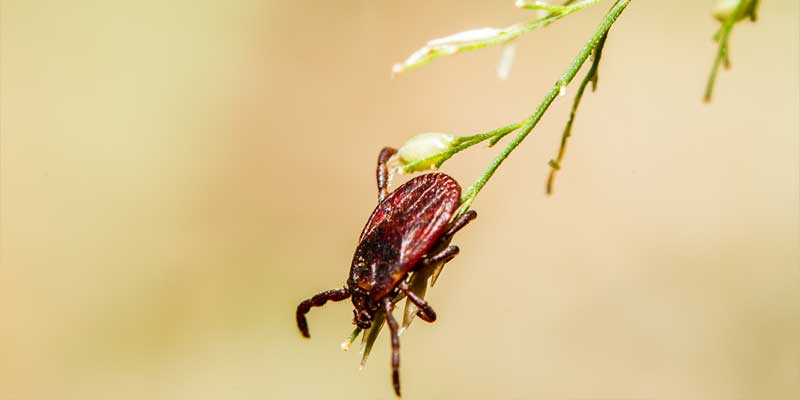
Tick season lasts from April to October in the Phoenix area, so we are right smack in the middle tick season right now. It’s important to continue to be diligent about these parasites so as not to get sick. Ticks transmit Lyme disease, which is an infection caused by the bacteria Borrelia burgdorferi.
The symptoms you will display will depend on how long the infection’s been in your body. However, the first sign is often an expanding oval red “bullseye” rash. If not treated, you could develop neurological symptoms as well as heart problems, and even develop Lyme arthritis. If your yard is teeming with ticks, call a tick exterminator in Phoenix immediately for the treatment of tick infestation and the prevention of ticks.
Lyme Disease: Defined
Lyme disease is so-named for Lyme, Connecticut, which is the location where this illness was first identified in 1975. As said above, April through October is tick season, and Lyme disease cases of Lyme disease are reported in nearly all U.S., of which Arizona is one.
Lyme disease is caused by a type of bacteria that can be spread to humans by the bite of a tick. Ticks hang out in wooded areas, yards, and low-growing grasslands. While not all ticks carry the bacteria that causes Lyme disease, more than 50 percent of the ticks can be infected with it depending on the region.
Most tick bites are indeed harmless, but some species can transmit life-threatening diseases such as:
- Rocky Mountain spotted fever
- Lyme disease
- Colorado tick fever
- Relapsing fever
- Powassan encephalitis
- Tularemia
- Ehrlichiosis
In Phoenix, the brown dog tick is the most common.
You are at a higher risk for Lyme disease if you:
- Work or spend time outdoors where ticks are commonly found
- Have pets (they can transfer ticks into your home)
Symptoms of Tick Bite
As said above, the first sign is often a red rash that:
- Appears several days after the infection
- Lasts up to many weeks
- Is usually small but can grow very large (up to 12”across), with a signature "bulls-eye" formation
- Looks like other skin problems as hives, sunburn, eczema, poison ivy, and flea bites
- Itches or feels hot
- May disappear and come back several weeks later
You may experience flu-like symptoms several days or weeks after an infected tick bite, such as:
- Headache
- Aches and pains in joints and muscles
- Stiff neck
- Low-grade fever and chills
- Swollen glands
- Fatigue
- Poor appetite
In the weeks and months after a bite, you may develop:
- Neurological symptoms, including inflammation (meningitis) and weakness of facial muscles (Bell’s palsy)
- Heart problems, including heart inflammation (myopericarditis) and heart rate problems
- Eye problems, including inflammation
Many months and years after a bite, you may experience:
- Joint inflammation (arthritis)
- Neurological symptoms (numbness in the extremities, pain and tingling, and difficulty with speech, concentration, and memory
Check For Ticks
It’s important to check yourself often for ticks, especially in summer. Focus on:
- Your joints (behind knees, underarms, between fingers and toes)
- Belly button, hairline, neck, top of head, in and behind ears
- Pressure points, especially where clothing presses against the skin
When going outside, use insect repellent and wear long-sleeves and pants.
For Tick Control in Phoenix, AZ
If you have noticed an infestation of ticks in your Phoenix & Mesa, AZ yard, contact Frontino Pest Control right away. We can provide effective tick treatment and prevention to ensure your yard remains safe and enjoyable throughout the summer months.

